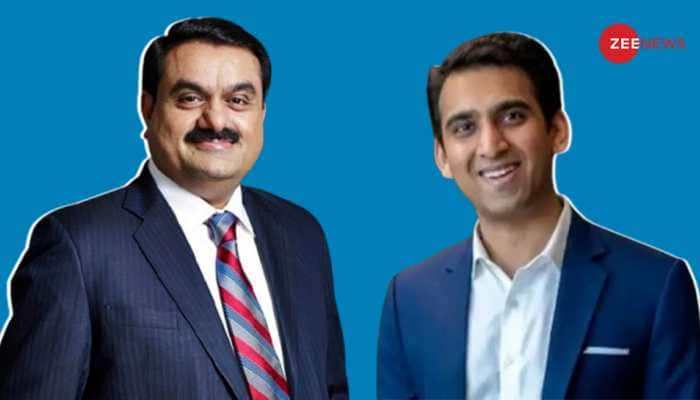What is delimitation and why it is important in Jammu and Kashmir before polls?
The delimitation commission has been tasked with redrawing parliamentary and assembly constituencies (based on the latest Census data) ahead of the electoral process in J&K and restoration of its statehood in the days to come.
- The delimitation commission is set to visit J&K soon
- It will interact with administrative officials, political parties and public representatives before the electoral process begins in J&K
- The visit of the delimitation commission holds significance since it comes days after PM Modi`s all-party meeting with J&K leaders
)
NEW DELHI: The Election Commission of India’s delimitation commission is scheduled to visit Jammu and Kashmir this week during which it will interact with administrative officials, political parties and public representatives as part of the exercise to complete the delimitation process ahead of polls in the UT.
The visit of the delimitation commission holds significance since it comes days after Prime Minister Narendra Modi`s all-party meeting with leaders from Jammu and Kashmir during which they discussed the issue of re-starting political activity in the Union Territory.
What is delimitation?
Delimitation is a process of demarcation of the boundaries of parliamentary or assembly constituencies (based on the latest Census data) in a way that the population of all seats is equally covered and gets a proper representation.
The Delimitation exercise is carried out after every census. Since it’s a politically sensitive process, it is not carried out by the Centre or state government. Instead, a high-powered body known as the Delimitation Commission is constituted by the Parliament by enacting the Delimitation Act under Article 82 of the Constitution.
The Delimitation Commission is vested with great powers and its orders are legally binding which means they cannot be questioned before any court.
Who all are the members of the Delimitation Commission?
The delimitation commission primarily consists of a chairman, who can either be a retired or a sitting judge of the Supreme Court, the chief election commissioner or any of the two election commissioners, and the election commissioner of the state in which the exercise is being carried out.
Besides, a select number of MPs and legislators (maximum 5) of the state chosen for the delimitation exercise can also be included as additional members of the commission.
Delimitation Commission is a temporary body and entirely depends on the Election Commission for carrying out the delimitation exercise. On behalf of the commission, the poll panel officials collect Census data for each district, tehsil and gram panchayat and on the basis of the information, the new boundaries are demarcated. Delimitation is a complex political exercise and can take up to five years.
Who heads the delimitation commission set for J&K?
For J&K, a three-member delimitation commission headed by retired Supreme Court judge Ranjana Prakash Desai was set up in March 2020 for a year. Later, the panel got a one-year extension from the Central government on March 3, 2021, after it failed to complete its task last year. The commission had resumed its work in full swing in the run-up to PM Narendra Modi’s recent all-party meeting with top political leaders of J&K.
The Jammu and Kashmir Reorganisation Act 2019 notified by the government on August 9, 2019, paved the way for the creation of two Union Territories - Jammu and Kashmir, which will have a legislature and Ladakh, without it.
The Act provides that the number of seats in the Legislative Assembly of Union Territory of Jammu and Kashmir shall be increased from 107 to 114, and delimitation of the constituencies will be determined by the Election Commission.
What will the Delimitation Commission do in J&K?
The delimitation commission has been tasked with redrawing parliamentary and assembly constituencies (based on the latest Census data) ahead of the electoral process in J&K and restoration of its statehood in the days to come.
In order to complete the task of delimitation on time, the District Election Officers and Deputy Commissioners of 20 districts of the Union Territory will gather first-hand information and input concerning the ongoing process of delimitation as mandated under the Jammu and Kashmir Reorganisation Act, 2019.
Why is delimitation exercise in J&K different from other states?
The delimitation exercise held in J&K in the past has been different than the other states because of the special status accorded to the erstwhile state of J&K under Article 370. In J&K, the delimitation commission was first constituted in 1952 and then in 1963, 1973 and 2002.
During the last such exercise, the demarcation of Lok Sabha seats in J&K was governed by the Constitution of India and for Assembly seats of the erstwhile state, it was governed by the Jammu and Kashmir Representation of the People Act, 1957.
The last such exercise in J&K was held in 1995, under the President’s Rule. Retired Justice KK Gupta was the head of the delimitation commission back then. The next delimitation exercise was supposed to be held in 2005, but it was stoped in 2002 after the then Farooq Abdullah government froze the exercise until 2026 by amending the Jammu & Kashmir Representation of the People Act, 1957, and Section 47(3) of the Constitution of Jammu & Kashmir.
Why J&K leaders are concerned about the delimitation exercise?
The delimitation in J&K is a politically sensitive matter as it concerns the representation of Kashmir where Muslims are in majority and the Hindu-dominated Jammu in the Legislative Assembly.
Political parties, including BJP, have been demanding greater representation for Hindu-dominated Jammu in the legislative assembly. To buttress their point, they claim that the freeze enforced by the then Farooq Abdullah government in 2002 has led to a poorer representation of Hindus from Jammu. The J&K Assembly, at that time, had 87 seats - 46 in Kashmir, 37 in Jammu and 4 in Ladakh - 24 were reserved for Pakistan-occupied Kashmir.
The Jammu and Kashmir Reorganisation Act 2019 notified by the government on August 9, 2019, has paved the way for the creation of two Union Territories - Jammu and Kashmir, which will have a legislature and Ladakh, without it. The Act provides that the number of seats in the Legislative Assembly of Union Territory of Jammu and Kashmir shall be increased from 107 to 114, and delimitation of the constituencies will be determined by the Election Commission.
The mainstream political parties in J&K remain concerned that their political fortunes will see a reversal after the delimitation exercise.
Stay informed on all the latest news, real-time breaking news updates, and follow all the important headlines in india news and world News on Zee News.
Live Tv







)
)
)
)
)
)
)
)
)
)
